5. Mesrine Parts 1 & 2
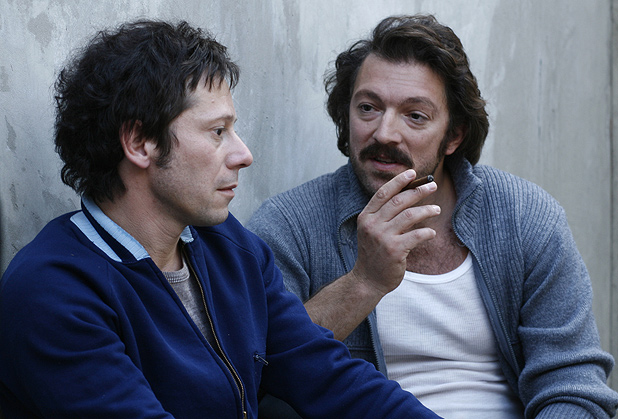
Mesrine is essentially France’s answer to Scarface. Cassel plays the title character Jacques Mesrine, a brutal real-life killer and escaped convict charged with committing an astounding amount of crimes. Part 1 details his early years while part 2 focuses on his decline and eventual death.
The film is distinctly American to its core, from its lavish violence to its loving homage to the ruthless gangster lifestyle. Cassel’s portrayal of the criminal-cum-folk hero is the unifying element, without which the film would most likely succumb to its many faults. It’s also a great showcase for Cassel’s leading man capability, which he gets too few chances to exercise.
Many of his most notable films are either ensembles or he is relegated to interesting supporting roles. Here he is on full display for a whopping 246 minutes of running time and continues to engage throughout. Few actors could sustain the intensity of the performance displayed here, but Cassel does so beautifully.
4. Brotherhood of the Wolf
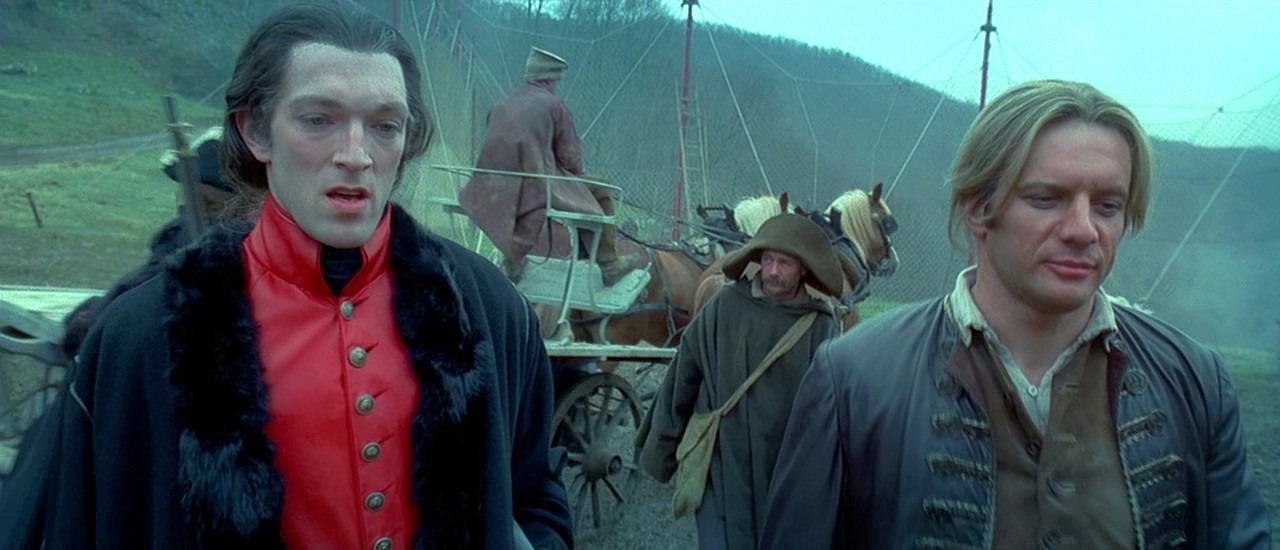
Brotherhood of the Wolf is a campy, genre-melding action movie that centers on the Beast of Gévaudan, a supposed French werewolf claimed to be responsible for numerous deaths during the late 18th century.
A knight and his Native American sidekick (who is a martial arts expert for no other reason than the character is played by Mark Dacascos) travel to the pastoral French countryside in order to slay the notorious beast. There they encounter quite a few mysteries and ultimately find a deep-rooted conspiracy.
Very few period pieces feature not only werewolves but also epic fight scenes, secret societies, mysticism, et al, but Brotherhood of the Wolf combines these many disparate elements in a relatively successful manner. The film was a verified smash hit in both its native France as well as internationally, and was well-received critically for the most part.
As the (seemingly) one-armed, sister-loving aristocrat, Cassel makes for the perfect over-the-top villain in a movie rife with bombast. He also displays the characteristic complexities that make many of this later performances so compelling. His Jean-Francois is not just your standard bad guy; he also brings to the table a sordid past full of tortured underpinnings and intrigue.
3. Eastern Promises
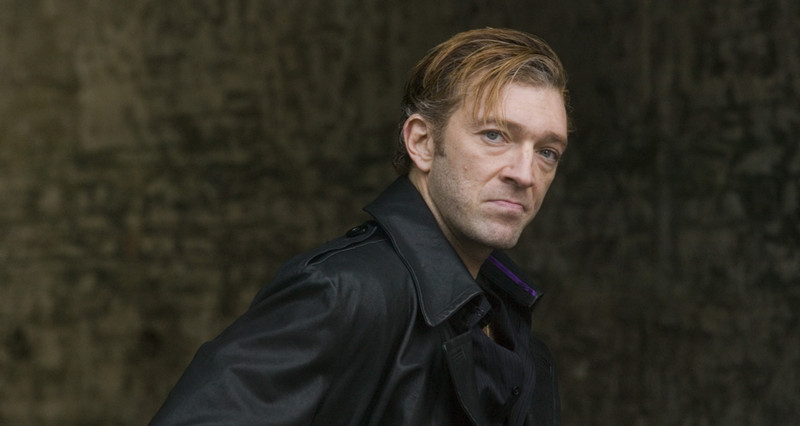
While David Cronenberg was mostly known as a director of horror movies, Eastern Promises (along with his previous film A History of Violence) marked his emergence as a director of note. Centering on Russian mobsters, the film exceeded expectations for its depiction of brutal violence and its impressively genuine performances from the entire cast.
As Kirill, the privileged and piggish son of the head of the Russian mafia in London, Cassel skillfully plays against type as a man who lacks the brutality and courage to be a true heir to the throne.
Tackling a reprehensible character can be difficult for many actors. It can be even more difficult to portray a character who is weak at his very core, and Kirill exemplifies weakness at every level.
The only reason he survives in his brutal world is thanks to his driver and own personal guardian Nikolai (played by Viggo Mortensen), who keeps Kirill safe despite his questionable behavior.
Kirill is literally broken, as evidenced by his penchant for sexual deviancy which speaks to deeper issues (whether they involve his being incapable of performing with women or latent homosexual desires buried under layers of false bravado).
While Cassel’s role is relatively small, it is memorable for all the right reasons. Kirill has not a single redemptive quality, and his attack of conscience at the end of the film seems more a product of fear than morality.
Cassel brings these unpleasant character traits to life in the most genuine way in his portrayal of what is essentially a rich kid unworthy of the good fortune bestowed upon him. He also serves as the perfect counterpoint to Nikolai, who is every bit as thought-out and deliberate as Kirill is impulsive and rash.
2. La Haine
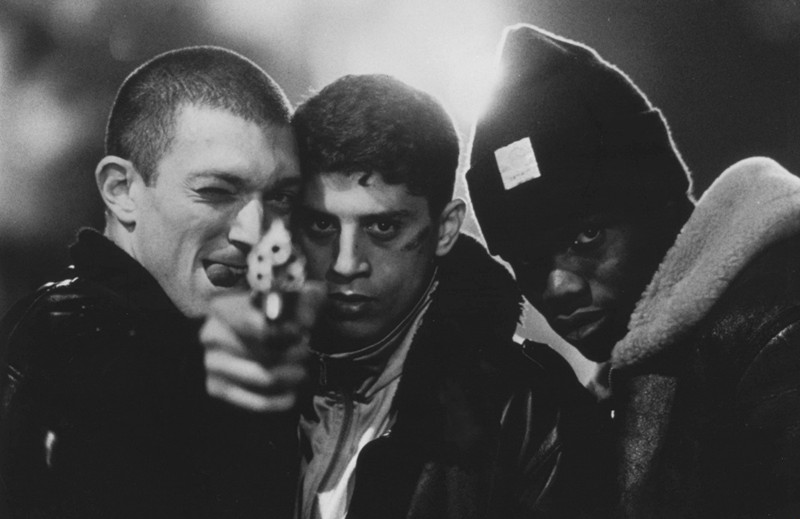
While first released in 1995, La Haine could easily be a depiction of current tensions between residents of impoverished American cities and local police forces. The film centers on three friends, Vinz (Cassel), Hubert, and Said, and their reactions to recent rioting resulting from the brutal beating of an associate by the hands of the police.
The film essentially plays out as a day in the life of the group, who all have different ideas on the best way to seek revenge for the injustices they and others face.
Vinz is the real stand out among the three lead characters, mostly for the change of heart he experiences towards the end of the film. While Hubert is the moral center and Said is the jokester, Vinz is most adamant that an eye for an eye is the only way forward. Upon finding a gun lost by a police officer during the riot, he vows to enact revenge should their hospitalized friend succumb to his injuries.
Cassel capably traverses the range of emotions experienced by the character, from his blasé attitude at the beginning of the film to the grim realization that even the most heinous life is worth preserving. La Haine was Cassel’s first role of real significance and the film itself holds up today as a sobering reminder that society’s most pressing problems are often without solutions.
1. Irreversible
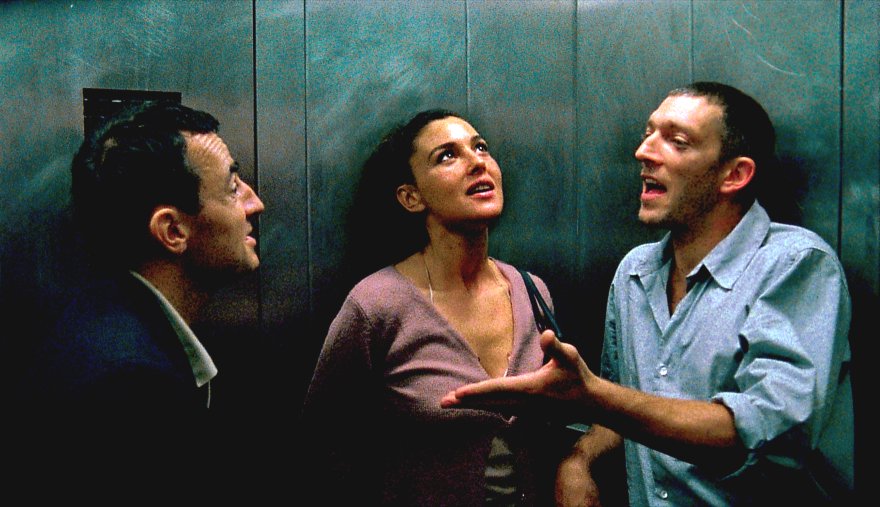
Irreversible is a deeply impressive and disturbing movie that turns the standard rape-revenge trope on its head. A young couple’s life together is destroyed after a senseless crime, and in an attempt to avenge the wrongdoing Marcus (played by Cassel) and Pierre (Albert Dupontel) seek out the perpetrator. On this relatively sparse plot director Gaspar Noe drapes an astounding piece of cinema that is equal parts horror movie and art film.
By telling the events in reverse order, you are immersed in a sense of vertigo that leaves you listing until the brutal scene, which serves as the linchpin for the entire film (when a red tunnel breaks in two, as one character puts it).
While the three leads are magnificent, Cassel is in rare form. During the course of the movie he veers from philanderer to despairing lover to a man obsessed with vengeance. Each transition is displayed with the utmost authenticity, as though he is actually living the events that are occurring.
Particularly interesting are his interactions with Dupontel. As the jilted former lover of Marcus’s current girlfriend Alex (played by Monica Bellucci), Pierre is characterized as the cerebral over-thinker to Marcus’s ape-like alpha male.
During their hunt for Alex’s assailant, Pierre is the voice of reason while Marcus’s actions cast him in the role of the villain (assaulting a prostitute and a cabbie, almost slitting the throat of a club-goer, etc.) The roles reverse dramatically when Marcus is attacked and subdued by thugs. Pierre responds in a scene of brutality that is truly jaw-dropping.
Author Bio: Eustacia Adams is a drinker with a writing problem. She has a degree in film theory and likes to annoy people with her meticulous knowledge of B-movie actors.